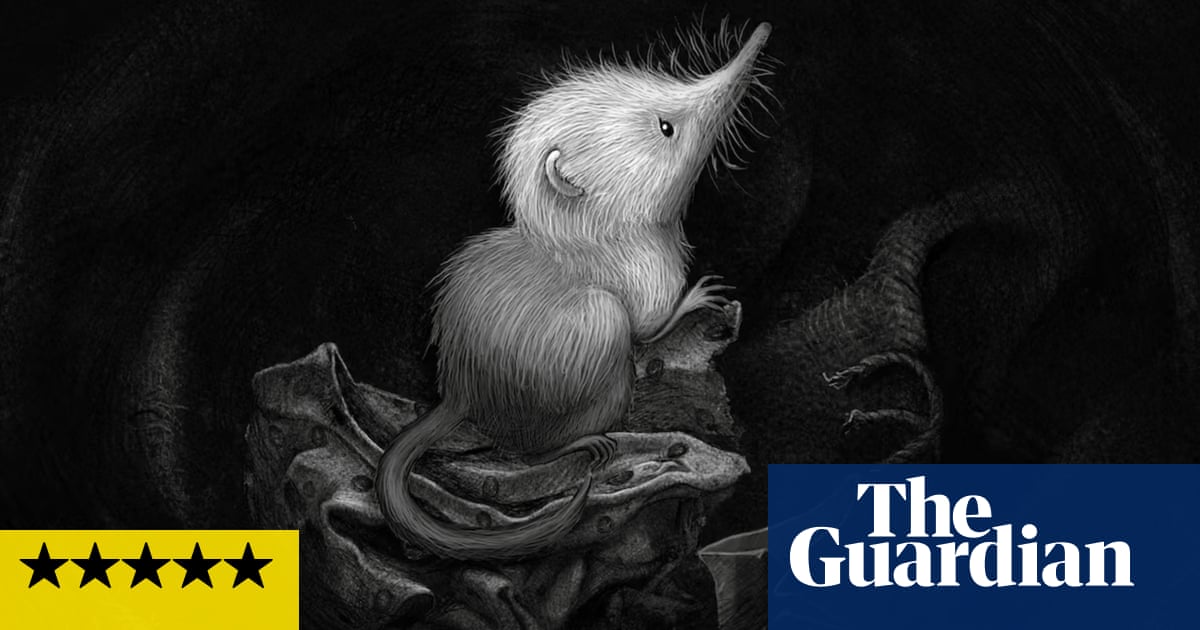All of Kate Bush’s sense of wonder, and how she tempers it with not just melancholy but outright sorrow, is threaded through her devastatingly moving new animated short film, Little Shrew.
Bush hasn’t performed live in a decade, or released new music since 2011 – and there’s an initial twinge of disappointment on discovering that this film isn’t built around a piece of new music. (In a BBC Radio 4 interview promoting it, she hinted that she will begin writing new material again soon.) Instead, it’s soundtracked by an edit of Snowflake, the opening song from that 2011 album 50 Words for Snow – a duet between Bush and her son Bertie.
Bush has long wrung stunning material out of family dynamics. Cloudbusting is full of the boyish admiration sons have for their fathers long after we become men; This Woman’s Work, about a crisis amid childbirth, is so stricken with awe at new life; Aerial was full of this material, from the maternal study of A Coral Room to a wonderfully guileless song about Bertie himself.
Snowflake continues that tradition, as Bertie takes the form of a snowflake, whirling in the night, and Bush hopes to catch him: “The world is so loud / Keep falling / I’ll find you.” Once again it gets to the heart of parenthood: its bewilderment, and how desperate it makes us to shelter our children in the world’s blizzard, snowblinded by love. There is perhaps a hidden wisdom, too, unspoken in the song – if we grip our children too hard, they could melt away from us.
It always felt bigger than Kate and Bertie, but Bush adds a terrifically powerful new dimension by making it, in Little Shrew, a lament for children affected by war, particularly in Ukraine (the film was made in collaboration with the charity War Child). As Bush says of Bertie in an accompanying essay: “I think his performance is extremely moving and although I’d originally written the song to capture his beautiful descant voice before he entered adolescence, it has taken on a haunting new meaning within the context of this animation.”
Bush writes and directs the film, storyboarded from her own sketches. These were drawn up by Jim Kay, the illustrator best known for Patrick Ness’s A Monster Calls (which inspired Bush) and pictorial editions of the Harry Potter series, and then animated with the studio Inkubus.
Little Shrew follows a Ukrainian pygmy shrew, captivated by a ball of cosmic light emanating from deep in the solar system. The creature scurries out of its cosy spot in the top pocket of a coat – and the animation coolly pans back to show that this is the corpse of a soldier sitting against a tree. The shrew makes its way through a war-torn landscape, and into the melee of Russian strikes, fired from under the chillingly blank face of an unmanned drone. Bush dwells on the gaping maw of a bombed building, animated from a photo by Maksim Levin, a Ukrainian photographer killed in the conflict.
A drone depicted in Little Shrew, illustrated by Jim Kay. Photograph: katebush.com
Bush writes that she originally considered a child as the protagonist, and some might find this exquisitely adorable mammal, nose twitching with worry, to be a sentimental and even nauseatingly cutesy choice. But for me it allows Bush to actually intensify the horror. Watching its sinewy little body, twisting in fear and rent by the force of an exploding bomb, is close to unbearable; a similar sequence of a child could have felt exploitative or overdone.
And as a symbol for children caught in the conflict, the shrew has such potency: children move through wars with the confusion and vulnerability of animals, often without even having language to give shape to the trauma of hearing explosions or seeing corpses. They are as innocent as shrews, too – and, as both Ukraine and Gaza have shown, as unheeded by the aggressors.
Bush undermines the sentimentality all the more by writing an ambiguous ending. She herself is perhaps that orb of light, asserting once more: “The world is so loud / Keep falling / I’ll find you” – a moving reminder to the children of Ukraine that they are not forgotten, intensified by this song suffused with such ardent, active love for her own son. But the shrew is seen tumbling through blackening space, never landing. Bush underlines there is no end in sight for children affected by war, except for an ending forced on them. This film made me weep for every one.
